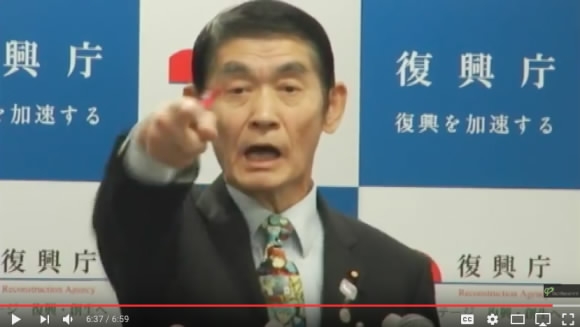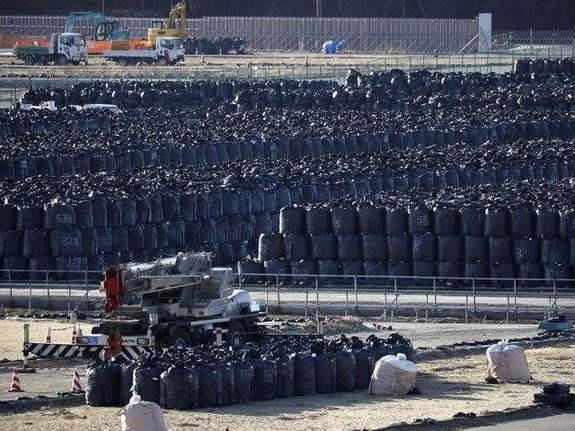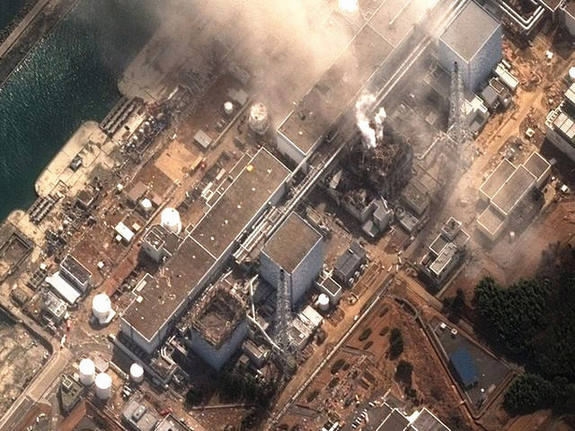Japanese Minister for Reconstruction Masahiro Imamura was fielding questions from journalists when the press conference turned testy. A reporter’s query about Fukushima left him outraged.
The press conference ended with Imamura storming out of the room.
Six years have passed since a massive tsunami slammed into a nuclear power plant near Japan’s eastern coast. There were meltdowns at three of the plant’s reactors in the world’s worst nuclear disaster since Chernobyl.
The Japanese government has been either silent or vague on the accident’s adverse effects.
Minister melts down after journalist's questions
Imamura’s now-infamous press conference on April 4 was about the Fukushima Prefecture government’s reconstruction plan—unveiled in 2011—for the disaster-hit Tohoku area.
A Japanese court last month ruled that the central government and the plant’s operator shared responsibility for the leak of radioactive material. Imamura was asked about the court case and how the state Reconstruction Agency planned to assist 26,000 voluntary evacuees after the local government halted financial aid for the displaced.
Imamura said the matter was up to the local government, which had a better understanding of the situation on the ground. He said people who evacuated on their own should face the consequences of their decision.

Viewers were shocked to see the Reconstruction Minister rip into a journalist. / YouTube Photo
Pressed on the matter, the minister was incensed, saying the government was doing its best and that issue was best left to authorities in Fukushima.
Before walking out the door, he told the journalist to “get out” and “shut up.” Imamura has since apologized for his behavior.
Other "bizarre" things the Japanese government has done
The amount of reconstruction work at Fukushima remains immense. A shortage of willing workers has forced the government, according to reports, to consider hiring refugees for the hazardous task.
According to Japanese media, two Bangladeshi migrants were told they would get visa extensions if they agreed to work at Fukushima. After their contracts ended, the Japanese firm that hired them had vanished.

Piles of nuclear pollutants in Minamisōma, Fukushima Prefecture. / AP Photo
Putting migrants in jobs few others are willing to fill may be a result of Japan’s worsening labor shortage. Demand for cheap foreign workers in Japan has grown, and many companies take advantage of migrants who know little about the country’s labor rules, according to Jiji Press.
In 2012, Asahi News reported that the Japanese government hid results of a US Department of Energy survey that showed large amount of radioactive pollution near the Fukushima nuclear plant.
Many of the people who fled Fukushima went to the northwest regions of Namie and Iitate, which the US survey showed were among the most polluted areas.
The government was criticized for keeping the survey results secret.

Satellite photo of March 14, 2011, showing the explosion at Fukushima No.1 nuclear power plant. / AFP Photo
Research also showed the effects of radiation have been far-reaching, particularly on the marine life that is part of the Japanese people’s dietary staple.
For instance, the concentration of the radioactive material cesium - a byproduct of nuclear reactions - in the waters near Fukushima is still high; a species of conch called Reishia clavigera is completely missing within 30 kilometers of waters near the Fukushima No.1 nuclear power plant.
Cover-up worse than calamity
Japan’s failure to keep a close watch on radiation levels in the waters near Fukushima has resulted in contaminated fish and other seafood being sold to the public.
“We have been following the Fukushima nuclear leakage incident and its follow-up impact. We have also noted commentaries issued by the Japanese media,” Chinese Foreign Ministry spokesperson Hua Chunying said.
“Their discharge of nuclear contaminated water into the sea posed a looming threat to the marine environment and people’s health. The Japanese government was also slow in adopting corresponding measures, lacked information transparency, and failed to convince the public with statistics on food safety.”
The Fukushima disaster was devastating, and the Japanese government’s response has been often seen as inadequate. Official statements have come late, incomplete, and at times self-contradictory.
Japan’s people—and the region at large—deserve better.









